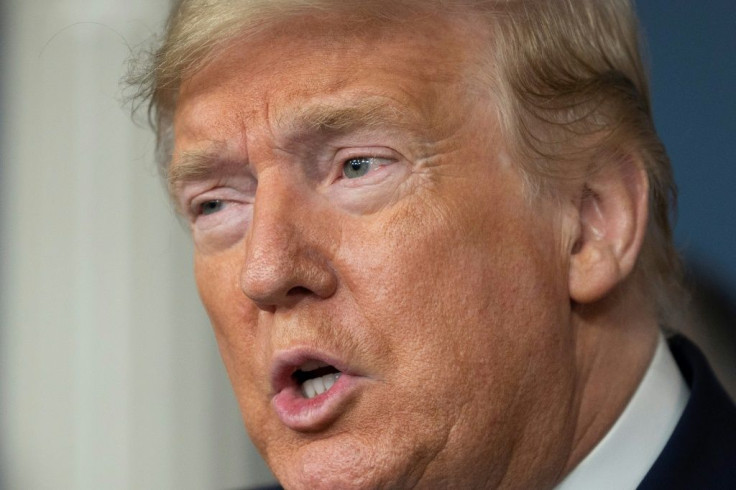Ohio Lawmaker Wants Trump Charged With Crimes Against Humanity For Promoting Malaria Drug

KEY POINTS
- Ohio state Rep. Galonski said she will refer Trump for "crimes against humanity"
- Trump has been criticized for promoting unproven, dangerous coronavirus treatment
- The drug, hydroxychloroquine, has been linked to cardiac arrest risk increases
- Limited trials have not shown it to effectively treat Covid-19
President Donald Trump's continued push to use malaria drug hydroxychloroquine as a cure for Covid-19 has drawn all-round criticism for the disregard for a lack of evidence. Now a state lawmaker from Ohio is threatening to seek to charge the president for “crimes against humanity” for promoting the untested treatment.
Experts have said there isn’t enough evidence the drug can treat people infected by the coronavirus. National Institute of Allergy and Infectious Diseases Director Dr. Anthony Fauci has said proof that the antimalaria treatment works on Covid-19 patients is “at best suggestive.” The drug has also been linked to an increased risk of cardiac arrest and health officials have warned Americans against taking it until testing has been done.
That hasn’t stopped Trump from promoting the drug, which is also used to treat lupus and rheumatoid arthritis. In his most recent coronavirus press conference on Sunday, the president asked, “what do you have to lose” by not administering the treatment. “If it does work, it would be a shame if we didn’t do it early,” Trump said.
Shortly after the statement, Ohio state Rep. Tavia Galonski tweeted that she would be asking the International Criminal Court in The Hauge to charge the president with crimes against humanity over his haphazard promotion of the untested drug.
“I can’t take it anymore. I’ve been to The Hauge. I’m making a referral for crimes against humanity tomorrow,” the Democrat representative tweeted. “Today’s press conference was the last straw,” she wrote.
I can’t take it anymore. I’ve been to The Hague. I’m making a referral for crimes against humanity tomorrow. Today’s press conference was the last straw. I know the need for a prosecution referral when I see one. https://t.co/XQin24gqY4
— Rep. Tavia Galonski (@RepGalonski) April 6, 2020
A handful of preliminary treatment trials using hydroxychloroquine to treat coronavirus patients have shown that it is not particularly effective, though one study suggested that those with mild symptoms saw some benefit.
The drug’s link to increased heart disease has prevented most health officials from calling it a coronavirus cure. Even still, the Food and Drug Administration (FDA) has approved it for limited use on Covid-19 patients.
Unfounded hype surrounding the drug’s abilities, however, has not prevented people around the world from seeking it out. As such, it has created a significant shortage of hydroxychloroquine, leaving many malaria patients unable to receive treatment.
© Copyright IBTimes 2024. All rights reserved.






















